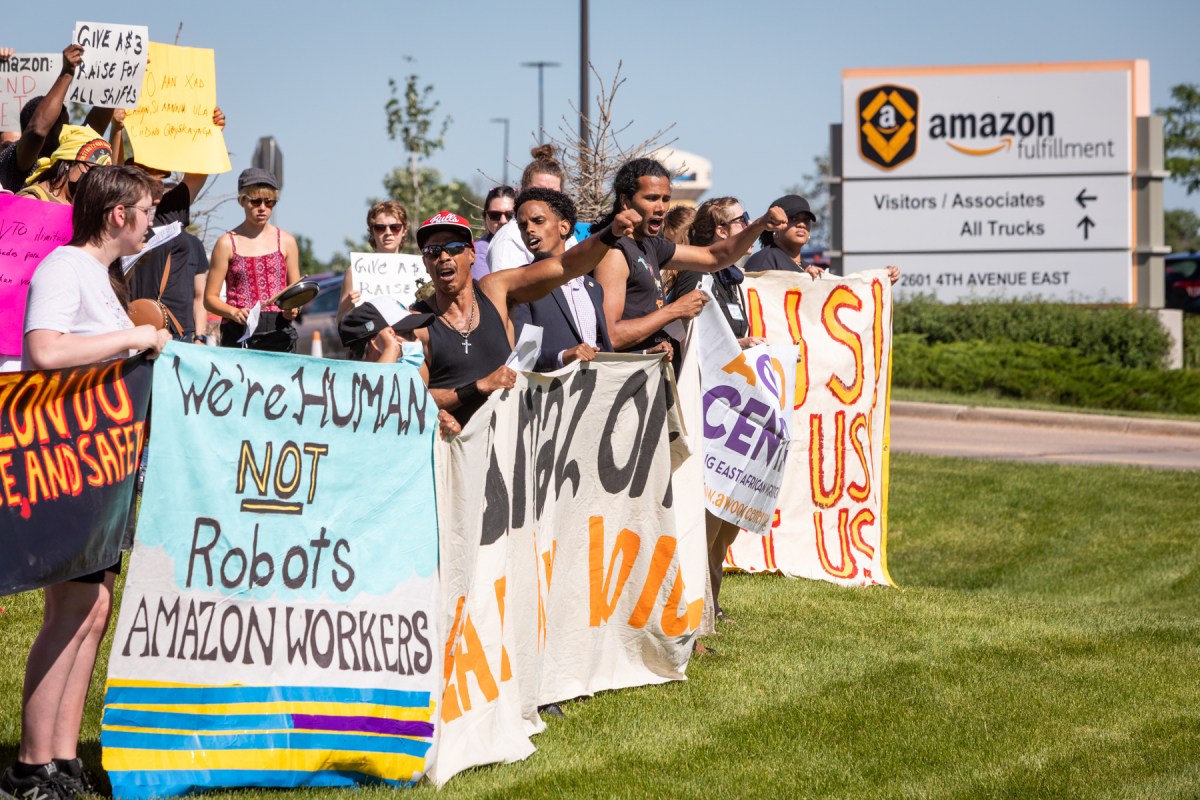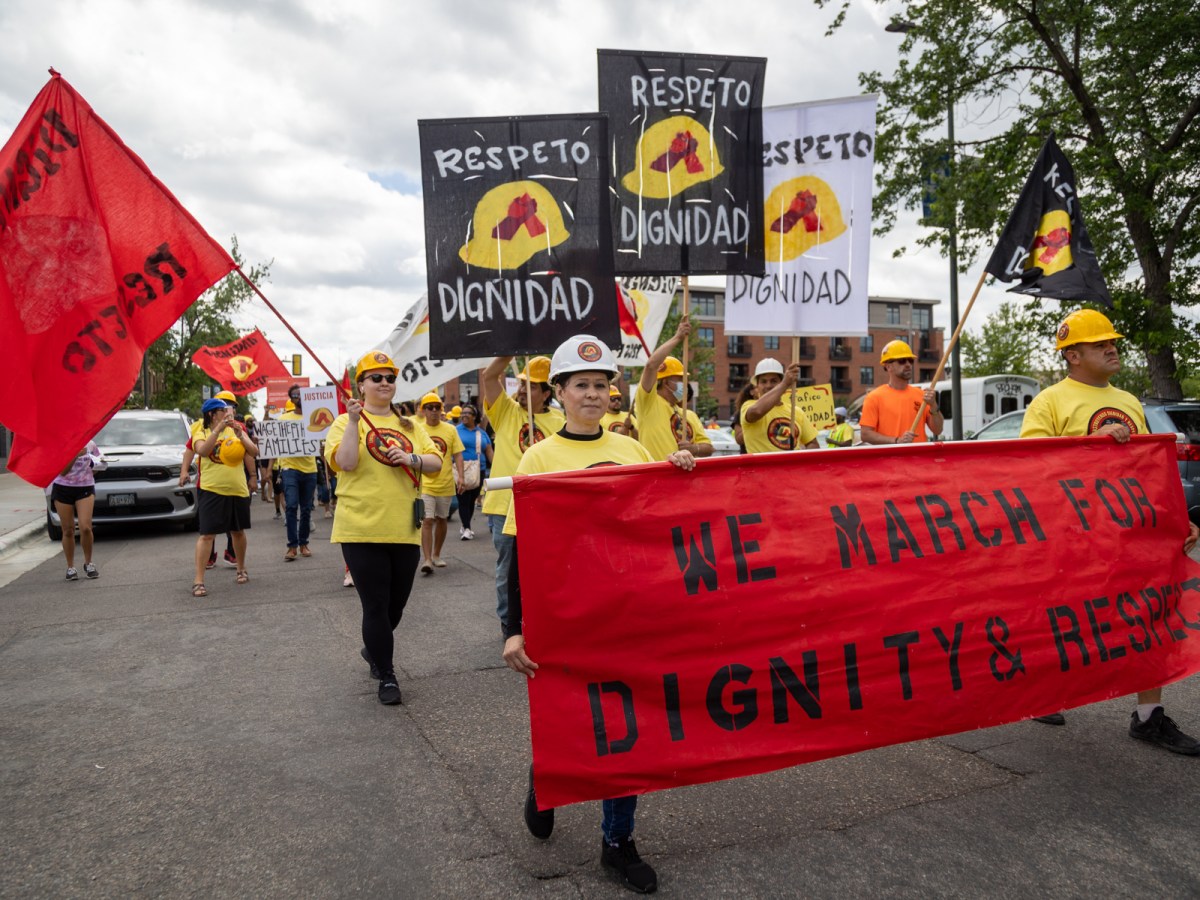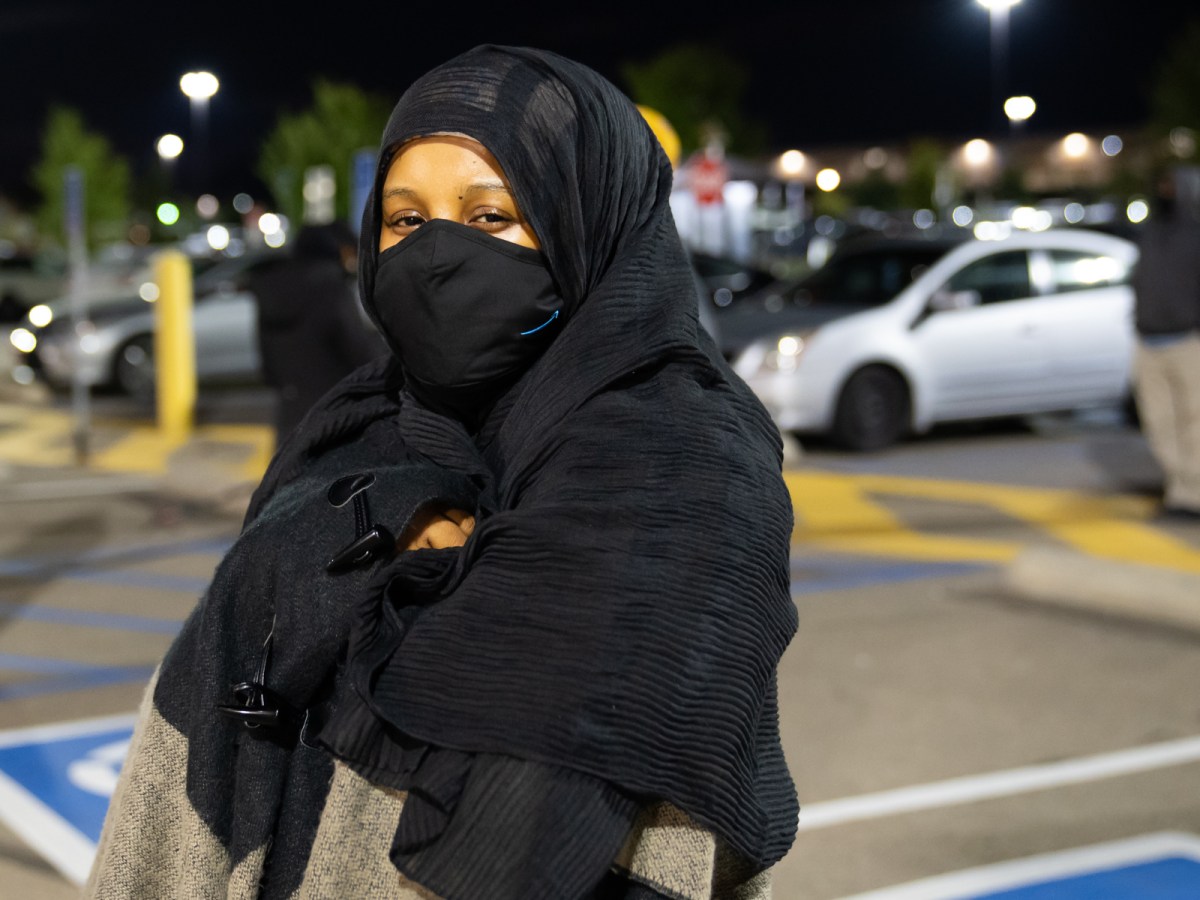Workers at Amazon’s warehouse in Shakopee rallied Friday afternoon, demanding a pay bump and criticizing the company for its handling of vacation time for Muslim employees.
Workers asked the e-commerce giant for a $3-an-hour raise and chided the company for not giving Muslim employees time off to celebrate Eid al-Fitr, which marks the end of the Islamic holy month of Ramadan. They also asked Amazon to take worker health and welfare more seriously.
“Pay Us! Protect Us! Respect Us!, Amazon #hear our voice,” read banners that were unfurled at the scene.
Khali Jama, 40, has worked at the delivery warehouse for six months and is one of several workers who encouraged colleagues to rally Friday. She also participated in an April walkout at the warehouse protesting similar workplace issues.
I believe the warehouse workers make Amazon, and I think we should get a better treatment.
Khali Jama, Amazon warehouse employee
“We have to have a lot of energy,” Khali said. “I believe the warehouse workers make Amazon, and I think we should get a better treatment.”
Amazon representatives issued a written statement Friday, but did not address the workers’ grievances.
“We’re proud to offer competitive compensation, top tier benefits, and the opportunity for all to grow within the company,” said the Amazon statement. “Our employees are the heart of Amazon and we provide several ways for employees to raise concerns or provide feedback directly to us if they see room for improvement.”
Some workers said Amazon discriminates based on race and religion when determining who can have time off for various holidays, and that it’s unclear how workers earn time off. They said profits are prioritized over workers’ needs, and that the company penalized employees who participated in the April walkout by deducting hours from their “unpaid time off,” a bank of time employees can use to take days off separate from their vacation days.
Workers said if they don’t get the raise, they might stage another walkout during Amazon’s Prime Day, which will offer customers steep discounts on several items on July 12 and 13.
Organizers of Friday’s rally did not say whether there are any unionization efforts currently underway. But some Amazon workers told Sahan Journal they have been studying workers’ rights, and have supported unrelated union events this week.
Protesters and supporters, including The Awood Center, which advocates for East African workers, demonstrated at 4 p.m. on a boulevard at the Amazon warehouse’s main driveway. Demonstrators chanted in Somali, Spanish, and English for more than half an hour as about 200 workers gathered at the peaceful rally.
“I don’t understand how we continue to find ourselves in this place,” said Minnesota Representative Ilhan Omar, who spoke at the rally. “They continue to put profits over people. People make the companies work.”
Minnesota state Representative Emma Greenman (DFL-Minneapolis) and state Senator Omar Fateh (DFL-Minneapolis) also spoke at the event.
Supporting unions
The rally was a familiar scene, but this time, organizers adjusted their strategy. Friday’s event wasn’t a walkout–Amazon’s Shakopee employees have walked out about a half a dozen times since the facility opened about six years ago. Friday’s rally was held during a shift change so employees wouldn’t have to miss work. Organizers hoped that would curb concerns about being penalized for participating.
Some local Amazon workers have joined unions like SEIU Local 26 at other labor rallies in the metro area, including one on Wednesday for teachers in north Minneapolis.
The prison glass has come down in the cafeteria, and people are talking with each other.
Tyler Hamilton, Amazon Warehouse employee
“The prison glass has come down in the cafeteria, and people are talking with each other,” said *Tyler Hamilton, 25, who has worked at the Shakopee warehouse since 2017.
Hamilton said he has stayed at the company in part to advocate for workers who were hired after him, especially since many of them are new to the United States and know little English.

He hopes his labor advocacy will improve conditions at the warehouse, which he said has poor communication with workers and discriminatory leave policies that contribute to a high attrition rate. A number of Amazon workers, like Hamilton, have become activists by educating colleagues about labor rights outside of work hours.
One woman’s advocacy
On a recent day leading up to Friday’s rally, Khali spoke with colleagues outside the warehouse during a shift change and passed out leaflets for the rally.
She’s a single mom with a daughter in college and a son who recently graduated from high school. She works at Amazon and a second job to make ends meet.
Khali works at Amazon as a “stower,” which involves inspecting and sorting packages as they’re organized for shipment. She also works as an ambassador, helping orient new hires to the warehouse.
Khali is also finding a new purpose advocating for her colleagues, and said she doesn’t fear retribution from her employer.
“They don’t like me,” she said of Amazon management.
Khali said she declined a promotion to a managerial role at Amazon because she didn’t want the company to use her Somali background to influence other Somali workers. Khali said she wants to preserve her ability to advocate for labor rights–especially for new immigrants–and to speak out about the company. She fears that East African and Latinx employees are leaving because of workplace conditions.
“I just feel like with Amazon, they represent themselves out there, but they don’t represent the warehouse workers,” she said. I feel like they mistreat us, especially since the [April] protest happened.”
Hamilton also remained an hourly shift worker instead of taking higher positions at Amazon so he could continue to organize and advocate for labor rights.
“I think unions at Amazon are inevitable,” Hamilton said. “If Amazon doesn’t believe that, they’re being naive. I would be shocked if 10 years from now unions aren’t a big part of Amazon.”
Mahad Hirabe, 25, was born in Mogadishu, grew up in Kenya, and arrived in the United States two-and-a-half years ago. He has worked at the warehouse since March.
Mahad, who is Muslim, and his coworkers help each other out to circumvent the way Amazon tracks workers’ break time, allowing them to take breaks for things like praying.
“I will do my work and the other person’s work while they are on break,” he said.
*CORRECTION: An earlier version of this article misidentified Tyler Hamilton’s first name, and misstated that he had been living in Fargo, North Dakota.






